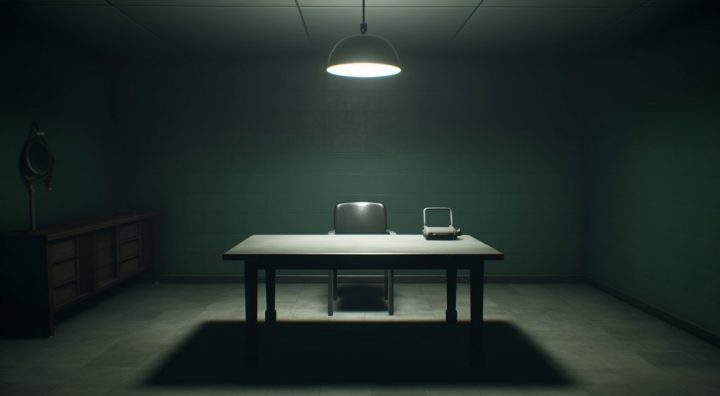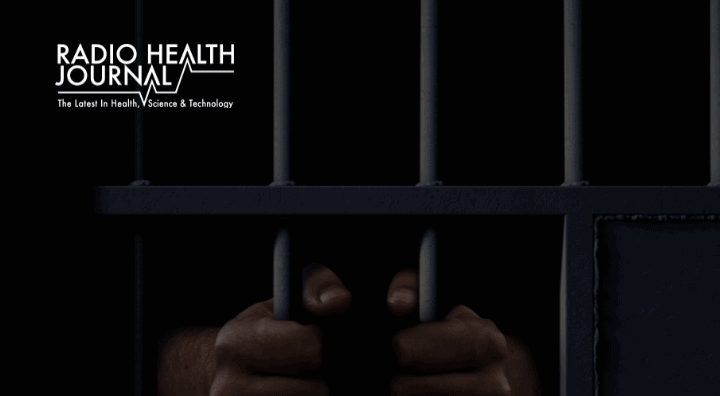Confessing to a crime that a person did not commit is a major reason for wrongful convictions. Scientists have found that the psychology of innocent people is a major reason for false confessions. Experts discuss the chain of events and psychology that allow them to occur, and public policy changes that could make them much more rare.
Guest Information:
- Dr. Max Guyll, Assistant Professor of Psychology, Iowa State University
- Rob Warden, Executive Director, Center on Wrongful Convictions, Northwestern University School of Law
Links for more info:
15-46 Interrogation Tactics and False Confessions
Reed Pence: Every now and then, we hear about someone who’s being released from prison after serving years or even decades even though they were innocent of the crime. DNA has helped overturn hundreds of wrongful convictions based on faulty eyewitness testimony, mistaken identity, or sometimes, a suspect confessing to a crime they didn’t commit.
Gwill: It’s very counter intuitive. Why would anyone confess to a crime that they didn’t’ commit? Even if you’re guilty, why would you say you did it? Make the police prove it, make them prove it to a jury, take your chances with a jury. It’s doubly counterintuitive when it’s someone that didn’t do the crime that for some reason ends up confessing to it.
Reed Pence: Dr. Max Gwill, Associate Professor of Psychology at Iowa State University, has studied the psychology that creates false confessions. He says while they’re rare, they happen more than you would hope.
Gwill: The first 250 individuals they looked at, that they got proven DNA exonerations — people who are excluded from being the suspect, 16% of them provided false confessions. That’s getting up to one in six people. You start wondering, what is it that could lead a person down this road?Reed Pence: The answer, as research by Gwill and others shows, is a combination of an innocent suspect’s mindset, and police interrogation techniques that result in powerful psychological coercion. But no matter how persuasive those methods are, most people — and most jurors – simply can’t conceive of ever buckling to pressure. If someone confesses, that usually trumps evidence to the contrary, and sends a person to jail.
Warden: Most of us don’t imagine that, no matter how much we were psychologically coerced, that we’d ever confess. I mean, you could do it for 40 hours and, no, we wouldn’t do it. But in fact, it can wear you down to the point where you may begin to wonder if maybe you didn’t commit the crime.
Pence: Rob Warden is Executive Director Emeritus of the Center on Wrongful Convictions at the Northwestern University School of Law.
Warden: The police have been trained in these interrogation techniques. The techniques were developed not with the idea that we’re going to get false confessions, but that we’re going to try to get the guilty person to give it up. It turns out, though, that the techniques are so powerful they will work on the innocent as well as the guilty. These techniques are taught in police academies. It’s called the Reid Technique. It was invented by John Reid and Fred Inbau, who was a professor at Northwestern Law school. Their intentions were good. They didn’t intend to harm anybody; they wanted to make police more efficient, solve crimes faster, that’s all. Nobody suspected for many many years until DNA came along and we were showing that, hey, how is it that you got all these confessions?Pence: Now, it’s important to note that we’re not talking about allegations of brutality to get a confession. But legal psychological tactics including empathy and minimization can be very persuasive. Interrogators may say something like this:Warden: “We believe you when you say that you think you didn’t do it, that you may be suffering from a self-protective amnesia. Now, if maybe you could just kind of speculate on how you might have done this. That’s a very common phenomenon, by the way, for somebody like you, who has never committed a crime and a good person, and have done something so out of character that you’ve just literally wiped this out of your memory, it’s that bad.” And before you know it, you’re speculating on how you might have committed it, and that is being construed as a confession.
Pence: But why on earth would an innocent person admit to even that? Gwill and his team have shown that the innocent have a different mindset than the guilty when they’re first accused of wrongdoing. The scientists developed an experiment where college students were brought into a project, wired to measure nervous system activity. And then half of them were lured into helping another student with his answers. A little later, all of the students, both the innocent and guilty, were accused of academic fraud, which could get them kicked out of college. After a brief interrogation, the students were given a minimization statement: “We promise nothing, but if you sign this confession, things will probably go better for you.” Gwill: As you would expect, most of the guilty participants confess — 93% of them — whereas the innocent participants who haven’t done anything wrong, actually 43% of them sign the confession statement admitting to having cheated on the triangle problem.
Pence: What’s more, the sensors attached to the students showed that the innocent reacted completely differently than the guilty when they were first accused.
Gwill: The innocent people showed less blood pressure and heart rate reactivity. Everybody’s blood pressure went up, but the blood pressure of the guilty went up more because they, “Oh my god, I did something that’s terrible and they caught me.” Whereas, the innocent like, “Oh, this is we’re going to be accused of something, but it’s not a big deal because I didn’t do anything wrong and they’ll find that out.” So, the idea is that indicates that they’re feeling less stress, and because of that you are not as worried as someone else. Then you may not take the situation seriously enough, realize the gravity of the situation, and take the measures that you should to protect yourself.
Pence: Gwill says that’s reflected in real life when innocent people are brought in for interrogation. They have a different mindset that makes them vulnerable to admitting to a crime they didn’t commit.
Gwill: Innocent people are much more likely to wave their Miranda rights and their right to seek council. They’re thinking, ‘They’re not really interested in me because I didn’t do the crime and I’ll just explain it to them. I’ll tell them where I was. They’ll look into it, they’ll check out my story.’ So, the innocent person has their guard down when they go into an interrogation. They think that the purpose of the interrogation is to learn the truth. But in the minds of the interrogators, when they have identified a suspect, that is the person they think did the crime. And the goal of the interrogator is to get a confession.
Warden: If you’re innocent, you often have this tendency, need, as it were, to explain. You think that, well, if I just explain to them they’re going to believe me and they’re going to see that they made a mistake. But then you say one thing that doesn’t quite match or that throws them off and they come at you with accusation after accusation, “You’re lying!” and they’re yelling at you.
Gwill: What happens is you tell your story, the police say, “Okay, why don’t you tell it again? Okay, tell me a little more. Ok, but now, that doesn’t quite match up with what you told me before, so why are you lying to me? It’s like, “Hey I’m not lying to you.” They’ll say, “Well, okay let’s go through it again.” So you go through it again, and then there’s another thing and they start bringing in some other things. Maybe they say, “We talked to this witness and they I.D. you as the person at the crime,” or, “We found a fingerprint off a doorknob and it matches your fingerprint.” So, now you’re really starting to get worried and your saying, How could this be? So, you stay there for a long time, you start to lose your cognitive abilities, you’re getting extremely tired and fatigued and you can just get very disoriented and worn out.
Pence: But then, that’s the idea. Interrogation tactics are based on pressure, psychology and exhaustion to break down the defenses of the guilty.
Gwill: In one study of proven false confessions, the average length of an interrogation that produced a false confession was 16 hours, so there’s 16 hours and then some that are quite a bit longer then that.
Warden: Sometimes we’ve seen cases in which there were 27 hours of just intermittent interrogation by tag teams of detectives.
Pence: And during all that time, interrogators are allowed to pull out every psychological tactic available.
Warden: The law allows — United States Supreme Court has approved it — the law allows the police to lie to you during interrogation. So the police can tell you that we have absolute proof, no question, you did it. We found the murder weapon in your room. It has your fingerprints on it and the victim’s blood on it. There’s blood on his shirt that we found in your room; there’s no question that you did it.
Pence: In the face of all that, Gwill says many exhausted innocent people decide that confessing is their best option at the time, again not realizing the implications of a confession.
Gwill: You feel like, well, I will confess, I’ll get out of this interrogation and then they’ll look into this case more and then they’ll find out I’m not the right person. But once you sign that confession, that confession itself is evidence, and it’s very compelling evidence and very strong evidence in court and before juries. So, it’s never a good idea to confess especially if you’re innocent.
Pence: Now, you may be wondering where a person’s lawyer is through all of this. Yes, you have a right to an attorney, but Warden says you have to ask to get one. If an innocent person’s guard is down, they may not think they need a lawyer. And then they often think they can’t change their mind later on.
Warden: Often what has happened here is we have become, as a society, we’ve watched television so many times, every time they arrest somebody, “You have a right to remain silent.” You hear the Miranda warning. It is something that is just echoing in your head, but, hey, if you’re innocent, you don’t care about the Miranda warning. You want to explain that I didn’t do this.
Pence: So Gwill says, if you’re ever brought in for interrogation and read your rights, you should “lawyer up,” as they say. Call your attorney, and don’t say anything until he arrives. Then there are the police. Both Gwill and Warden say they’re trying to do their jobs the way we want them to, and they don’t like false confessions, either. But it seems the developers of police interrogation techniques were just as sure as the rest of us that truly innocent people would never confess to a crime.
Warden: And of course, a lot of investigative work is based on hunches, so sometimes the police will develop a theory of the crime. They’ll think that this may be the way it occurred and then every single fact that they can find that they can somehow be construed as supporting that theory is exaggerated in their minds and anything that contradicts it is basically ignored.
Pence: Warden says two changes could go a long way to prevent false confessions — or at least prevent them from landing someone in prison. First is a more stringent rule on admitting confessions into court when they’re not backed up by the rest of the evidence.
Warden: One of the things that we’ve seen often in confessions that have then been proven to be false were that they contained inaccurate details. Details that were just blatantly wrong, and yet, what’s a juror to believe, that the guy — he confessed to this crime! Boom! He’s guilty automatically. People believe that and it’s understandable. That’s why we need to have a higher bar to letting this stuff into court.
Pence: Warden has also long advocated electronic recording of interrogations from beginning to end. Juries can see how long the interrogation lasted, what was said, and how well it matches the facts of the case.
Warden: It eliminates any false accusation of abuse or that promises were made. So, you don’t have motions to exclude, you don’t have motions to suppress the confession, take court time and prosecutor’s time and public defender’s time; everybody wins. It’s good for the police, it protects the police, it protects the innocent, we get the right people, remove violent criminals from the street, and more likely to get them because we don’t stop the investigation when we’ve in fact got the wrong guy.
Pence: More than half of the states now call for recording interrogations, and many localjurisdictions do in the rest of the states. So, Warden says in the future, we should see fewer cases where innocent people end up serving time based on a confession they want to take back once they’ve had a few hours of sleep. You can find out more about all of our guests through links on our website, radiohealthjournal.net. I’m Reed Pence.
Sign up to receive email updates
Enter your name and email address below and I’ll send you periodic updates about the podcast.











Leave a Reply